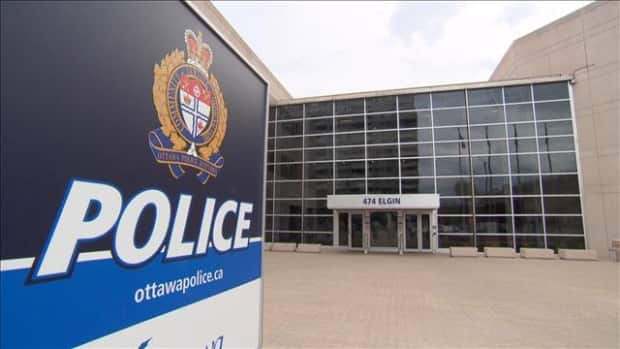Hate crime unit's return met with appreciation, hope

Members of Ottawa communities that have been targeted by hate crimes are welcoming the Ottawa Police Service's decision to bring back a unit dedicated to fighting those offences.
The force announced this week it was reintroducing the hate crime unit, less than a year after confusion arose over whether one ever existed in the first place.
Sahada Alolo, co-chair of the Community Equity Council, said she hasn't reported hateful incidents she's personally experienced as a Muslim woman of colour.
She said the existence of the dedicated unit will change that.
"Not only will I report it, I will actually encourage people to report it," Alolo said. "Once we have the numbers and people have the data ... a lot more can be done to change."
'A win-win'
There were 110 reports of hate crimes in Ottawa last year, the police service said, up from 104 in 2018 and 95 in 2017.
The force is adding two new specialized hate crime investigators to the security and intelligence section. In their announcement of the dedicated unit, Ottawa police said they will accept online reports from people who witness hate incidents or graffiti.
Alolo said the council and community stakeholders have been calling for the return of a dedicated unit, and said the fact that happened is a sign police are listening.
"It's a win-win for both sides," she said. "The police [will have] the resources to do their job well and the community [is] beginning to trust that the police is on their side and working to cap hate."

Waiting for results
Rev. Anthony Bailey, coordinating minister at Parkdale United Church, said the announcement shows police are taking hate incidents seriously.
Bailey was among the signatories to a letter welcoming the police announcement, along with the Canadian Anti-Hate Network and 613/819 Black Hub. His church was also one of the religious institutions targeted in a racist graffiti spree in 2016.
"I think making it acceptable for people to report what they've experienced is absolutely essential," Bailey said.
Bailey said people are sometimes reluctant to come forward because they don't believe they'll be taken seriously or potentially face language barriers.
He said he's waiting to see if the dedicated unit will help address that reluctance.
"We'd like to see the promised results and the promised responsiveness," Bailey said.

Rabbi Aytan Kenter, senior rabbi at Kehillat Beth Israel — also the target of racist vandalism in 2016 — said his community is feeling more vulnerable after recent attacks on U.S. synagogues.
He said he hopes the new unit will provide a point of contact when the community seeks protection during large gatherings, such as the High Holy Days.
"We're not alone as Jews in feeling the sense of fear in relation to crimes that are based upon who a person is — and what it is they believe, or who they love," Kenter said.
Confusion in 2019
In May 2019, after racist graffiti was scrawled on a black Ottawa family's home, the force somewhat confusingly said it never had a dedicated unit to fighting hate crimes.
It was a perplexing statement, given that there were multiple reports billing the hate crime unit as the first of its kind in Canada when it was created in 1993.
On its 15th anniversary, former mayor Larry O'Brien heaped praise upon it — even declaring Jan.15 "hate crime awareness day" in the capital.
That confusion led former interim chief Steve Bell to tell CBC News the unit was "renamed or moved over to the security and intelligence" section in January 2017.


